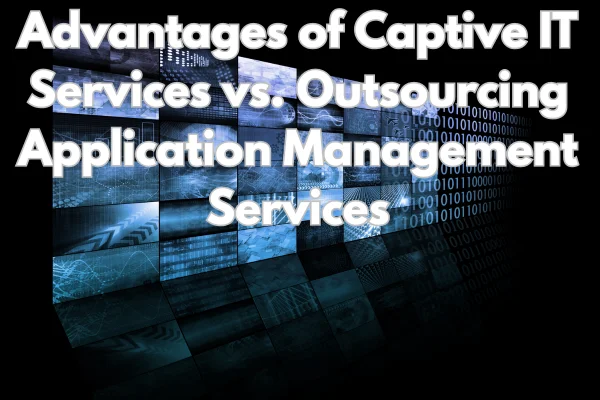Looking to take your website to new heights? Want to drive organic traffic and boost your ranking on search engine result pages? Look no further! In the digital age, mastering search engine optimization (SEO) is crucial for any website owner or digital marketer. But with constantly evolving algorithms and strategies, staying ahead of the competition can be challenging. That's why we've compiled a comprehensive list of 10 proven SEO strategies that will not only improve your website's ranking but also drive organic traffic to your site. From creating high-quality content and optimizing your website's structure to utilizing keywords and building authoritative backlinks, these strategies are tried and tested to deliver tangible results. Whether you're a beginner or an experienced SEO practitioner, this guide will provide you with the necessary tools and insights to take your website to the next level. So, let's dive in and unlock the secrets to SEO success!
Importance of Organic Traffic and High Website Ranking
Organic traffic refers to the visitors who come to your website through unpaid search engine results. It is a valuable source of traffic as it indicates that users are finding your website through relevant searches. A high website ranking means that your website appears on the first page of search engine results, increasing visibility and credibility. By focusing on SEO, you can attract more organic traffic and improve your website's ranking, leading to higher conversion rates and business growth.
Keyword Research and Optimization
Keyword research is the foundation of any successful SEO strategy. It involves identifying the keywords and phrases that your target audience is using to search for information related to your business or industry. By incorporating these keywords strategically into your website's content, meta tags, headings, and URLs, you can optimize your website for search engines. This will increase the chances of your website ranking higher in search results when users search for relevant keywords.
On-Page Optimization Techniques
On-page optimization involves optimizing the elements on your website to improve its visibility to search engines and users. This includes optimizing meta tags, headings, URLs, image alt tags, and internal linking. By using relevant keywords in these elements and ensuring they are descriptive and concise, you can improve your website's relevancy and increase its chances of ranking higher in search results. Additionally, optimizing your website's structure and navigation can enhance the user experience, leading to longer visit durations and lower bounce rates.
Creating High-Quality and Engaging Content
Content is king in the world of SEO. High-quality and engaging content not only attracts and retains visitors but also signals to search engines that your website is valuable and relevant. By creating informative, well-researched, and unique content, you can position yourself as an authority in your industry and increase your website's visibility. Incorporate relevant keywords naturally into your content and focus on providing value to your audience. Remember, quality trumps quantity, so prioritize creating valuable content over churning out numerous mediocre pieces.
Building High-Quality Backlinks
Backlinks are links from other websites that point to your website. They are like votes of confidence and authority from other websites, indicating to search engines that your website is trustworthy and valuable. Building high-quality backlinks is an essential SEO strategy. You can acquire backlinks through guest blogging, influencer collaborations, industry partnerships, and creating valuable content that naturally attracts links. However, it's crucial to focus on quality over quantity, as search engines prioritize the relevance and authority of the linking websites.
Utilizing Social Media for SEO
Social media platforms are not only great for engaging with your audience and building brand awareness but also for boosting your SEO efforts. By sharing your content on social media, you can increase its visibility and reach. Additionally, social media can help drive traffic to your website and attract social signals, which are indicators to search engines that your content is valuable and engaging. Optimize your social media profiles with relevant keywords and encourage social sharing to maximize the impact of social media on your SEO.
Mobile Optimization and Responsive Design
With the increasing use of mobile devices, having a mobile-optimized website is critical for SEO success. Search engines prioritize mobile-friendly websites in their rankings, as they provide a better user experience for mobile users. Ensure your website is responsive and adapts seamlessly to different devices and screen sizes. Optimize your website's loading speed, minimize unnecessary elements, and ensure easy navigation on mobile devices. By prioritizing mobile optimization, you can attract more mobile traffic and improve your website's ranking.
User Experience and Website Speed Optimization
User experience plays a vital role in SEO. Search engines value websites that provide a seamless and enjoyable user experience. Slow-loading websites, complex navigation, and poor design can lead to high bounce rates and lower rankings. Focus on optimizing your website's speed by compressing images, minifying code, and using caching techniques. Ensure your website is easy to navigate, with clear menus, intuitive layouts, and relevant internal links. By prioritizing user experience, you can improve engagement and increase the chances of visitors converting into customers.
Tracking and Analyzing SEO Performance
To measure the effectiveness of your SEO strategies, it's crucial to track and analyze your website's performance. Use tools like Google Analytics to monitor organic traffic, keyword rankings, bounce rates, and conversion rates. Analyze the data regularly to identify trends, strengths, and areas for improvement. By understanding what is working and what needs adjustment, you can refine your SEO strategies and maximize your website's performance. Continuously analyze your competitors' SEO efforts to stay ahead of the game and identify new opportunities.
Conclusion and Final Thoughts
Mastering SEO is a continuous process that requires dedication, patience, and adaptability. By implementing these 10 proven SEO strategies, you can boost your website's ranking, drive organic traffic, and achieve long-term success. Remember to prioritize creating high-quality content, optimizing your website's structure, and building authoritative backlinks. Stay up to date with the latest SEO trends and algorithms and adapt your strategies accordingly. With persistence and a data-driven approach, you can unlock the secrets to SEO success and take your website to new heights.

 English
English













